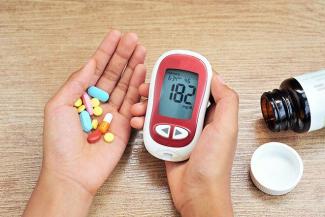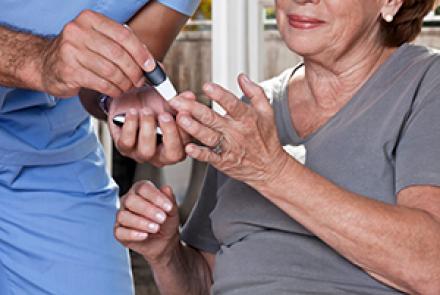
Most people with chronic conditions take more than 1 drug. According to one study those over the age of 60 take 5 drugs on an average. These can cause unexpected reactions and drug-to-drug interactions. Here is what you need to know:
What is drug-to-drug interaction?
When a drug taken along with another drug causes an unwanted or counter-productive interaction, such that it affects the activity and efficacy of the other drug, it is term as a drug-to drug interaction.
For diabetic patients, this is an important concept to keep in mind when taking other drug along with their regular diabetic medications. Let’s look at common diabetes drugs and which drugs can or may affect them if administered together.
What medications to avoid with Metformin and other non-insulin diabetic medications?
Certain drugs can lead to high blood sugar when taken with metformin. These include but are not limited to:
- Heart medications such as Diuretics, hypertensive drugs, digoxin etc.
- Thyroid medications.
- Anti-seizure drug like phenytoin.
- Oral contraceptives or hormone replacement therapy.
- Medications for asthma, allergies or cold.
- Steroids
- Diet pills/ Vitamin B3/ niacin and combination drugs like Simcor, Niaspan etc.
- Antipsychotics like phenthiazines.
What medications to avoid with Insulin?
Over 700 drugs are known to interact with insulin in some way or the other. Drug interactions are likely to increase or decrease the effects of Insulin. So often, insulin dosages may have to be altered when on other medications (used for short or long term). Let’s look at some medications that are required for chronic conditions that do interact with Insulin:
- Thyroid medicines
- Anti-depressants (SSRIs)
- Anti-psychotics
- Heart medicine like ACE inhibitors, disopyramide etc.
- Antibiotics like sulfonamides, quinine, levofloxacin etc.
- Steroids
Not all medications have been listed in this guide so make sure you check with your doctor before starting on any other prescription drugs, over-the-counter medicines, herbal products, supplements etc. Obviously if a person has multiple conditions, he/she may be prescribed these combinations. Best to discuss all your medicines with your doctor and avoid any adverse drug interactions.
Related Reading: Medicines that Increase or Decrease Blood Glucose Levels
Remember:
Consult your doctor before any changes in medications.
Beware of such interactions and monitor sugar levels regularly.
Please contact your doctor for any adverse reaction or unexpected symptoms.
References:
- https://www.drugs.com/metformin.html
- https://www.drugs.com/cons/insulin-parenteral.html
- http://www.healthcommunities.com/diabetes-management/insulin-drug-interactions.shtml
- https://www.rxlist.com/oral_diabetes_medications-page4/drugs-condition.htm#drug
- https://www.diabetesselfmanagement.com/managing-diabetes/treatment-approaches/dangerous-drug-combinations/
















